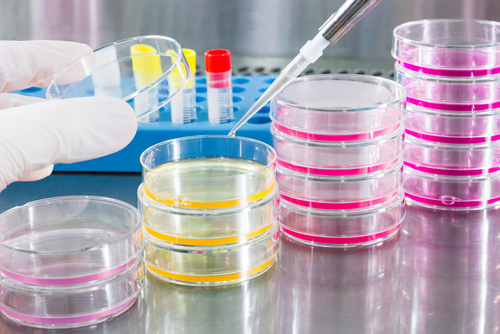Lantern Project Offers Diagnostic Opportunities for Rare Genetic Disease Patients
Written by |

Because there is relatively less awareness of rare genetic diseases, which often share symptoms common to better-known disorders, a program has been created to provide access to free diagnostic genetic testing for several lysosomal storage diseases, including Fabry disease.
Tens of thousands of lysosomal storage disease cases go undiagnosed. Sometimes, diagnosis will take years as patients go from doctor to doctor seeking answers. For example, the median period from onset of symptoms to Fabry disease diagnosis is 15 years. Access to comprehensive diagnostic testing also can be a barrier to diagnosis.
The Lantern Project aims to enable doctors in the United States to facilitate tests for specific suspected lysosomal storage diseases. The project is a partnership between Sanofi Genzyme and PerkinElmer Genomics, a state-of-the-art biochemical and molecular genetics lab that provides newborn screening and genomic testing.
In particular, the project will help those suspected of having the diseases Gaucher, Pompe, Niemann-Pick type A and B, Fabry and mucopolysaccharidosis (MPS) type I. In addition, there also will be enzyme tests available for seven MPSs and genetic testing for limb-girdle muscular dystrophy (LGMD) and other muscle diseases.
Physicians also may request confirmatory DNA tests and blood-drawing services.
Taking advantage of next-generation sequencing technology, a much-faster and less-expensive way to sequence DNA, the Lantern Project allows sequencing of various genes simultaneously. That means patients can be tested for multiple LGMD disorders at the same time as other similar conditions, such as Pompe disease and spinal muscular atrophy.
“While we have seen many significant advances in research over the past 30-plus years, there are still tremendous challenges in helping patients get a diagnosis for many rare diseases,” Sarah Gonzalez, head of medical diagnostics at Sanofi Genzyme, the specialty care global business unit of biopharmaceutical firm Sanofi, said in a press release.
Lysosomal storage disorders are a group of more than 40 metabolic conditions that result from defects in lysosomal function. Lysosomes are sacs of enzymes within cells that absorb large molecules and pass the remnants on to other cellular parts for recycling. This process requires several critical enzymes. If one enzyme is defective, these large molecules gather within the cell, ultimately killing it. Developmental delay with regression and/or organ dysfunction is a hallmark of lysosomal storage disorders.
Individually, lysosomal storage disorders are rare, but together they affect about one in 7,700 births, which represents a relatively prevalent health problem.
Delays in diagnosis risk further disease progression, as well as feelings of frustration and isolation. Conversely, early diagnosis promotes better opportunities for disease management.
“The Lantern Project will help more patients access testing while also raising broader awareness of the critical need for more diagnostic services and support for all people affected by rare diseases,” Gonzalez said.
Health care professionals may go here to learn more about a specific disease, the supporting test, and how to order it. For those familiar with the disorders listed, a testing kit may be ordered online.





